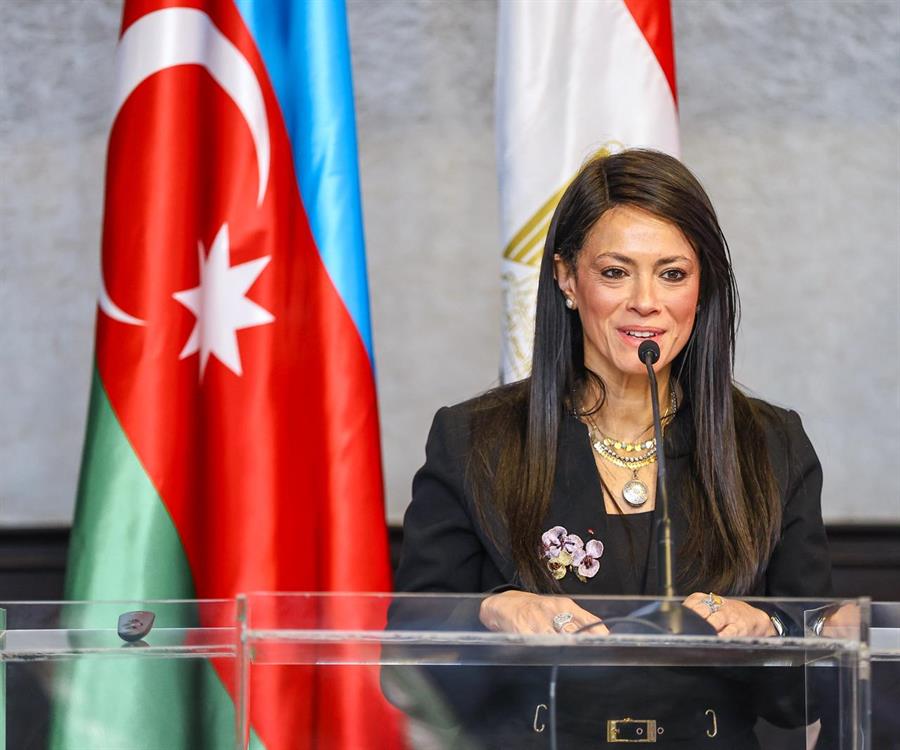Egypt’s Planning Minister Inaugurates First Healthcare Governance Forum in Egypt

27 June 2024
H.E.Dr. Hala El Said, Minister of Planning and Economic Development and Chair of the Board of Trustees of the National Institute for Governance and Sustainable Development, Dr. Khaled Abdel Ghaffar, Minister of Health and Population, and Dr. Sherifa Sherif, Executive Director of the National Institute for Governance and Sustainable Development, inaugurated the first Healthcare Governance Forum. The forum is held in collaboration between the Ministry of Health, the Institute for Governance, and the Medical Affairs Secretariat of the Cabinet, along with Thunderbird School of Global Management in the United States of America. The event was attended by leaders from both ministries, Dr. Ahmed Taha, Head of the General Authority for Accreditation and Healthcare Regulation, and several academic members of parliament and experts in the healthcare field and civil society.
During her opening remarks, Dr. Hala El Said emphasized Egypt's commitment to the health sector, highlighting the International Annual Conference of the National Planning Institute, the scientific and research arm of the Ministry of Planning and Economic Development, under the theme "Health and Sustainable Development". This underscores the sector's vital importance and aligns with Goal 17 of the United Nations Sustainable Development Goals, focusing on establishing good healthcare services and ensuring the well-being of Egyptian citizens through robust governance to enhance the capacities of healthcare entities, supporting the establishment of a sustainable national healthcare sector in Egypt.
El Said stressed the importance of governance in economic policies, accountability, and stakeholder participation to ensure efficient policies through accountability and implementation effectiveness.
Regarding international trends in healthcare governance, El Said explained that international studies, particularly those from the World Health Organization's Global Health Economics Council, underscore the importance of coherence between health, economic, social, and environmental policies within a proactive approach to achieve efficiency and sustainable development in creating a capable, strong, and productive health society, integrating health institutions to address health crises. She highlighted the urgency following the COVID-19 crisis, exposing healthcare vulnerabilities and significant gaps in the world's most advanced countries, emphasizing the critical need for governance in this sector.
El Said also addressed the importance of data governance, stemming from the concept of data automation amid rapid technological advancements such as artificial intelligence, emphasizing the necessity of a comprehensive healthcare data governance system beginning from birth and death registry systems to institutional governance, noting its significance not only in the healthcare sector but also at the national level. She highlighted the real-time birth monitoring system, which proved beneficial in aligning all developmental plans of the state based on data to identify all gaps and required services at the village level, essential through a well-structured healthcare data governance system.
El Said highlighted that healthcare governance in Egypt serves as a tool to enhance healthcare system efficiency, aiming to provide balanced healthcare services that contribute to improving the quality of life for Egyptian citizens, emphasizing that health forms the foundation for any developmental efforts.
Regarding the role of the Ministry of Planning and Economic Development through the National Institute for Governance and Sustainable Development, El Said explained that the institute serves as a significant training arm of the ministry, consistently keeping pace with all developments. She noted the launch of the first phase of the training program in the United States of America in collaboration with Thunderbird School of Global Management and the Egyptian Ministry of Health, under the tripartite cooperation protocol signed between the Ministry of Health, the Institute, and the Supreme Medical Committee and Relief at the Cabinet, targeting 35 healthcare providers from the Ministry of Health and Population and 4 leaders from the Supreme Medical Committee starting in early July. El Said added that the second phase of the program will be held in Cairo, involving about 20 trainees who have successfully completed the initial training phase, where a Training of Trainers (TOT) program will certify them as trainers accredited by Thunderbird School of Global Management, ensuring the program's sustainability in Egypt and building more Egyptian capabilities in this field.
El Said affirmed that the program falls within the state's efforts to enhance healthcare system efficiency and effectiveness by involving all relevant stakeholders.
She also highlighted the institute's role in preparing a national governance index in partnership with various local and international entities, reflecting the actual societal situation through an independent entity conducting neutral surveys in collaboration with academic institutions and international universities to provide a governance index reflecting the actual situation in Egypt, aiming to improve the situation.
El Said pointed out the institute's role in monitoring, evaluating, and assessing Egypt's status in sustainable governance, regional and international competitiveness, and local development, to develop plans and mechanisms to enhance Egypt's performance in governance and competitiveness indicators. She also noted the institute's launch of capacity-building programs, which have qualified a number of trainees from the state administrative apparatus, as well as initiatives to train youth in sustainable development.
During the forum, Dr. Hala El Said and Dr. Khaled Abdel Ghaffar witnessed the signing of cooperation protocols between the Ministry of Planning and the Egyptian Health Council to support and develop the information system of the Egyptian Health Council, as well as another between the Ministry of Health and the National Institute for Governance and Sustainable Development regarding joint cooperation in designing and implementing activities to support and enhance governance in the healthcare sector in the Arab Republic of Egypt. Additionally, a cooperation protocol was signed between the Ministry of Health and the Accreditation and Health Regulation Authority regarding the preparation of training programs in accreditation and healthcare regulation for government workers and internal auditing at the Ministry of Health.









